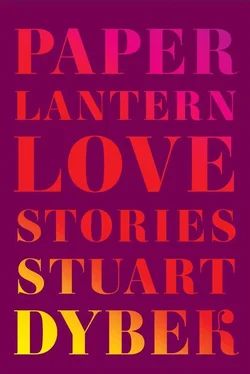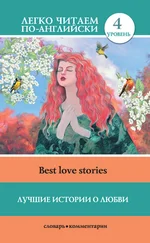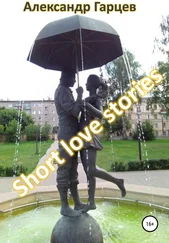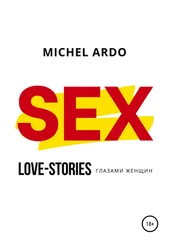We sit at one of the five Formica tables—our favorite, beside the window—and the waitress immediately brings the menu and tea. Really, in a way, this is the best part: the ruddy glow of the paper lantern like heat on our faces, the tiny enameled teacups warming our hands, the hot tea scalding our hunger, and the surprising, welcoming heft of the menu, hand-printed in Chinese characters, with what must be very approximate explanations in English of some of the dishes, also hand-printed, in the black ink of calligraphers. Each time we come here the menu has grown longer. Once a dish has been offered, it is never deleted, and now the menu is pages and pages long, so long that we’ll never read through it all, never live long enough, perhaps, to sample all the food in just this one tucked-away neighborhood Chinese restaurant. The pages are unnumbered, and we can never remember where we left off reading the last time we were here. Was it the chrysanthemum pot, served traditionally in autumn when the flowers are in full bloom, or the almond jelly with lichees and loquats?
“A poet wrote this menu,” Tinker says between sips of tea.
“Yes, but if there’s a poet in the house, then why doesn’t this place have a real name—something like the Red Lantern—instead of merely being called the Chinese Laundry by default?” the Professor replies, wiping the steam from his glasses with a paper napkin from the dispenser on the table.
“I sort of like the Chinese Laundry, myself. It’s got a solid, working-class ring. Red Lantern is a cliché—precious chinoiserie,” Tinker argues.
They never agree.
“Say, you two, I thought we were here to devour aesthetics, not debate them.”
Here, there’s nothing of heaven or earth that can’t be consumed, nothing they haven’t found a way to turn into a delicacy: pine-nut porridge, cassia-blossom buns, fish-fragrance-sauced pigeon, swallow’s-nest soup (a soup indigenous to the shore of the South China Sea; nests of predigested seaweed from the beaks of swifts, the gelatinous material hardened to form a small, translucent cup). Sea-urchin roe, pickled jellyfish, tripe with ginger and peppercorns, five-fragrance grouper cheeks, cloud ears, spun-sugar apple, ginkgo nuts and golden needles (which are the buds of lilies), purple seaweed, bitter melon …
Nothing of heaven and earth that cannot be combined, transmuted; no borders, in a wok, that can’t be crossed. It’s instructive. One can’t help nourishing the imagination as well as the body.
We order, knowing we won’t finish all they’ll bring, and that no matter how carefully we ponder our choices we’ll be served instead whatever the cook has made today.
* * *
After supper, sharing segments of a blood orange and sipping tea, we ceremoniously crack open our fortune cookies and read aloud our fortunes as if consulting the I Ching .
“ Sorrow is born of excessive joy. ”
“Try another.”
“ Poverty is the common fate of scholars. ”
“Does that sound like a fortune to you?” Tinker asks.
“I certainly hope not,” the Professor says.
“ When a finger points to the moon, the imbecile looks at the finger .”
“What kind of fortunes are these? These aren’t fortune cookies, these are proverb cookies,” Tinker says.
“ In the Year of the Rat you will be lucky in love .”
“Now, that’s more like it.”
“What year is this?”
“The Year of the Dragon, according to the place mat.”
“ Fuel alone will not light a fire. ”
“Say, did anyone turn off the Bunsen burner when we left?” The mention of the lab makes us signal for the check. It’s time we headed back. A new theory was brewing there when we left, and now, our enthusiasm rekindled, we return in the snow—it has begun to snow—through thick, crumbling flakes mixed with wafting cinders that would pass for snowflakes except for the way the wind is fanning their edges to sparks. A night of white flakes and streaming orange cinders, strange and beautiful, until we turn the corner and stare up at our laboratory.
Flames occupy the top floor of the building. Smoke billows out of the skylight, from which the sooty moon has retreated. On the floor below, through radiant, buckling windows, we can see the mannequins from the dressmaker’s showroom. Naked, wigs on fire, they appear to gyrate lewdly before they topple. On the next floor down, in the instrument-repair shop, accordions wheeze in the smoke, violins seethe like green kindling, and the saxophones dissolve into a lava of molten brass cascading over a window ledge. While on the ground floor, in the display window, the animals in the taxidermist’s shop have begun to hiss and snap as if fire had returned them to life in the wild.
We stare helplessly, still clutching the carryout containers of the food we were unable to finish from the blissfully innocent meal we sat sharing while our apparatus, our theories, our formulas, and years of research—all that people refer to as their “work”—were bursting into flame. Along empty, echoing streets, sirens are screaming like victims.
Already a crowd has gathered.
“Look at that seedy old mother go up,” a white kid in dreadlocks says to his girlfriend, who looks like a runaway waif. She answers, “Cool!”
And I remember how, in what now seems another life, I watched fires as a kid—sometimes fires that a gang of us, calling ourselves the Matchheads, had set.
I remember how, later, in another time, if not another life, I once snapped a photograph of a woman I was with as she watched a fire blaze out of control along a river in Chicago. She was still married then. Her husband, whom I’d never met, was in a veterans’ hospital—clinically depressed after the war in Vietnam. At least, that’s what she told me about him. Thinking back, I sometimes wonder if she even had a husband. She had come to Chicago with me for a fling—her word. I thought at the time that we were just “fooling around”—also her words, words we both used in place of others like “fucking” or “making love” or “adultery.” It was more comfortable, and safer, for me to think of things between us as fooling around, but when I offhandedly mentioned that to her she became furious, and instead of fooling around we spent our weekend in Chicago arguing, and ended up having a terrible time. It was a Sunday afternoon in early autumn, probably in the Year of the Rat, and we were sullenly driving out of the city. Along the north branch of the river, a factory was burning. I pulled over and parked, dug a camera out of my duffel, and we walked to a bridge to watch the fire.
* * *
But it’s not the fire itself that I remember, even though the blaze ultimately spread across the city sky like a dusk that rose from the earth rather than descended. The fire, as I recall it, is merely a backdrop compressed within the boundaries of the photograph I took of her. She has just looked away from the blaze, toward the camera. Her elbows lean against the peeling gray railing of the bridge. She’s wearing the black silk blouse that she bought at a secondhand shop on Clark Street the day before. Looking for clothes from the past in secondhand stores was an obsession of hers—“going junking,” she called it. A silver Navajo bracelet has slid up her arm over a black silk sleeve. How thin her wrists appear. There’s a ring whose gem I know is a moonstone on the index finger of her left hand, and a tarnished silver band around her thumb. She was left-handed, and it pleased her that I was, too, as if we both belonged to the same minority group. Her long hair is a shade of auburn all the more intense for the angle of late afternoon sunlight. She doesn’t look sullen or angry so much as fierce. Although later, studying her face in the photo, I’ll come to see that beneath her expression there’s a look less recognizable and more desperate: not loneliness, exactly, but aloneness —a look I’d seen cross her face more than once but wouldn’t have thought to identify if the photo hadn’t caught it. Behind her, ominous gray smoke plumes out of a sprawling old brick factory with the soon-to-be-scorched white lettering of GUTTMAN & CO. TANNERS visible along the side of the building.
Читать дальше












